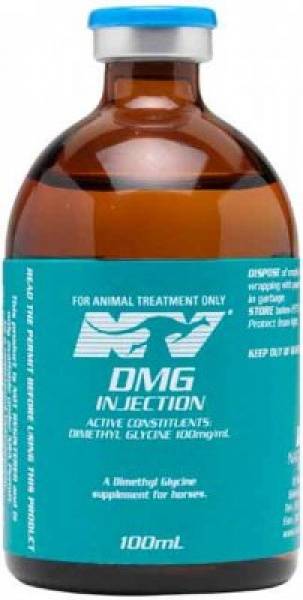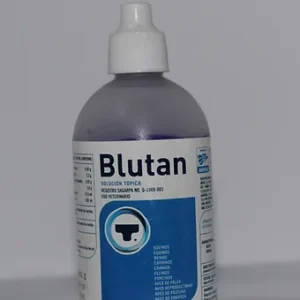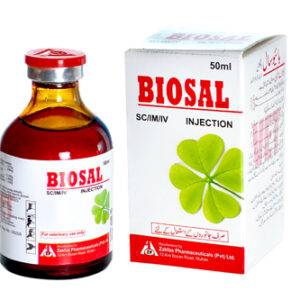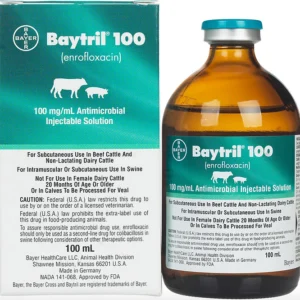DMG injection
DMG (Dimethylglycine) injection is a supplement used in horses to support overall health, improve performance, and enhance endurance. DMG is a derivative of the amino acid glycine and has a wide range of benefits, particularly in boosting immune function, oxygen utilization, and recovery from physical exertion. Here’s a detailed account of DMG injection for horses:
What is DMG Injection?
Dimethylglycine (DMG) is a natural compound found in small amounts in animal cells and plants. In equine medicine, DMG is used as a nutritional supplement to enhance the horse’s stamina, performance, and immune response. It works by improving the oxygenation of tissues, enhancing metabolism, and reducing the buildup of lactic acid during exercise.
Uses of DMG Injection in Horses:
DMG injections are commonly used for the following purposes:
Improving Athletic Performance: DMG supports energy production and reduces lactic acid buildup, allowing horses to perform at higher levels for longer periods. This makes it especially beneficial for racehorses, endurance horses, and performance horses.
Enhancing Recovery: After strenuous exercise, DMG helps speed up the recovery process by reducing muscle soreness and fatigue.
Supporting Immune Function: DMG is believed to enhance the immune response, making horses more resilient to infections, particularly under stress from travel, training, or competition.
Improving Respiratory Function: DMG has been shown to improve oxygen utilization, which can be beneficial for horses with respiratory issues such as heaves or exercise-induced pulmonary hemorrhage (EIPH).
Stress Reduction: Horses under stressful conditions, such as transport, competition, or illness, may benefit from DMG supplementation, which helps reduce oxidative stress and supports overall health.
Mechanism of Action:
Improved Oxygen Utilization: DMG helps improve the transportation of oxygen in the bloodstream and increases the efficiency of oxygen utilization in tissues. This is particularly important for performance horses, as better oxygenation improves stamina and delays fatigue.
Lactic Acid Buffering: During intense exercise, the body produces lactic acid, which can lead to muscle fatigue and soreness. DMG helps buffer lactic acid, allowing the horse to perform for longer durations without experiencing muscle fatigue.
Immune Support: DMG is believed to enhance both cellular and humoral immune responses, making horses more resilient to infections and diseases. This is especially helpful for horses exposed to high-stress environments, such as competitions or long travels.
Antioxidant Properties: DMG acts as an antioxidant, protecting cells from damage caused by free radicals during intense exercise or stress.
Dosage and Administration:
Route of Administration: DMG is typically administered via intramuscular (IM) or intravenous (IV) injection, depending on the product and veterinarian recommendation.
Dosage: The dosage varies depending on the horse’s weight, activity level, and the specific condition being treated. A typical starting dose for horses ranges from 5 mL to 10 mL administered once or twice daily. Always follow your veterinarian’s recommended dosing schedule.
Long-Term vs. Short-Term Use: DMG can be used both short-term for a quick performance boost or long-term for ongoing support of stamina, immune function, and recovery.
Benefits of DMG Injection for Horses:
Enhanced Stamina: Horses treated with DMG tend to perform at higher levels with reduced fatigue, making it ideal for athletic horses involved in intense physical activities such as racing, jumping, or endurance events.
Faster Recovery: DMG helps reduce muscle soreness and stiffness after strenuous exercise, allowing horses to recover faster between workouts or competitions.
Improved Breathing: By enhancing oxygen utilization, DMG can improve the respiratory efficiency of horses, particularly those suffering from respiratory issues.
Immune Support: Horses that are frequently exposed to stress or high-performance demands may have a boosted immune system response when supplemented with DMG.
Stress Reduction: Helps mitigate the effects of stress from transportation, competition, or illness, contributing to the horse’s overall well-being.
Potential Side Effects:
DMG is generally considered safe for horses and side effects are rare. However, as with any supplement or medication, there is the potential for side effects, including:
Injection Site Reactions: Mild swelling or soreness at the injection site may occur in some horses.
Allergic Reactions: Although rare, some horses may have allergic reactions to the injection, leading to symptoms such as hives, swelling, or difficulty breathing. If this occurs, immediate veterinary attention is required.
Gastrointestinal Upset: In some cases, DMG may cause mild digestive disturbances, such as diarrhea or gas, especially if the horse has a sensitive stomach.
Precautions:
Veterinary Guidance: Always administer DMG under the supervision of a veterinarian. Proper dosing and administration are key to avoiding any potential issues.
Competition Regulations: While DMG is generally allowed in most equine competitions, it’s important to check the regulations of specific racing or equestrian governing bodies to ensure compliance with their rules.
Monitoring: If using DMG long-term, regular monitoring by a veterinarian is recommended to ensure that the horse remains healthy and responds well to treatment.
8. Where to Buy DMG Injection:
DMG injections can be purchased through licensed veterinary pharmacies, either at physical locations or online. It is important to consult with a veterinarian before purchasing to ensure proper usage and to obtain a prescription, if necessary.
9. Legal Status:
In many countries, DMG is available over the counter as a nutritional supplement for horses, but injectable forms may require a prescription. Regulations can vary by country or region, so it’s important to check the legal status of DMG injections in your area, especially if you are competing in regulated events.
Competition Considerations:
Allowed in Most Events: DMG is not classified as a banned substance in many equine competitions; however, each event or sport may have specific rules regarding its use. Always check with the governing body of your event or competition to ensure compliance.
Withdrawal Periods: Some competitions may require a withdrawal period before a horse that has been treated with DMG can participate. This withdrawal period ensures that the supplement is out of the horse’s system before competition.
Conclusion:
DMG injections provide a range of benefits for horses, particularly those involved in intense physical activities like racing, jumping, or endurance events. By improving oxygen utilization, reducing lactic acid buildup, and enhancing immune function, DMG helps improve performance, stamina, and recovery.
It is generally well-tolerated by horses and offers a safe option for improving their overall health and athletic performance. Always consult with a veterinarian before starting any new treatment or supplement program, especially when administering injectable forms of DMG.





Reviews
There are no reviews yet.